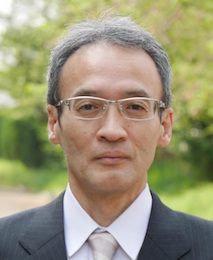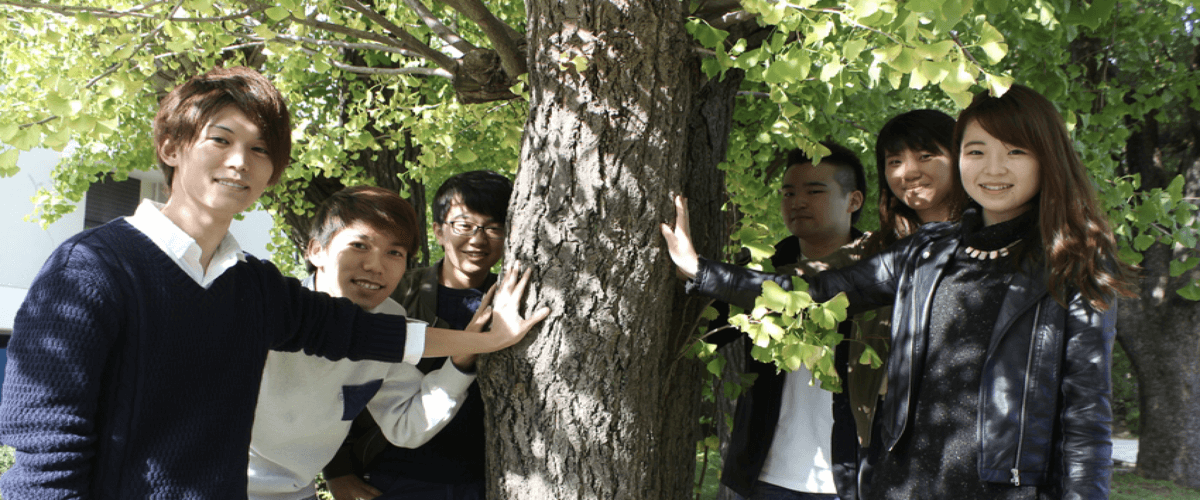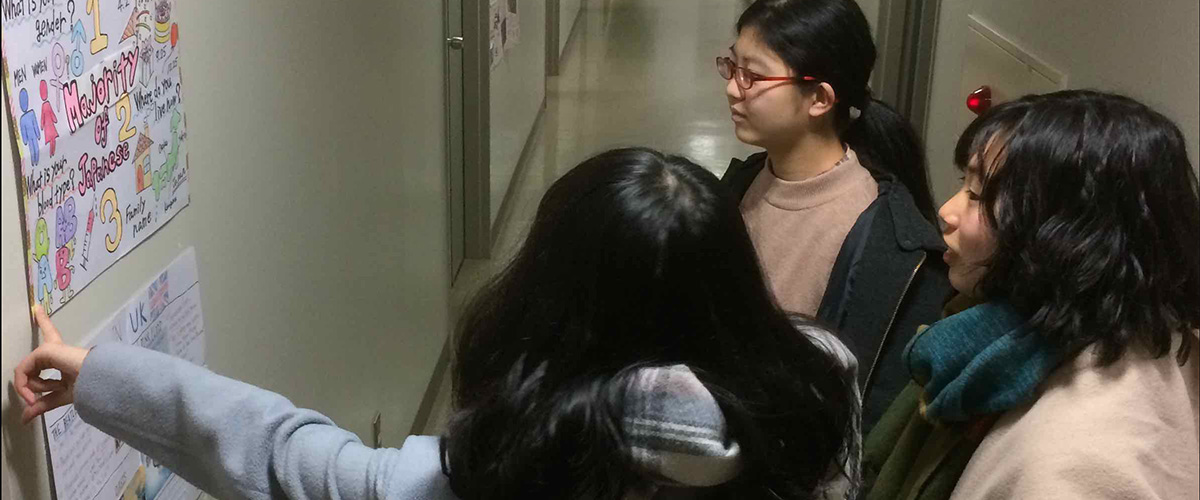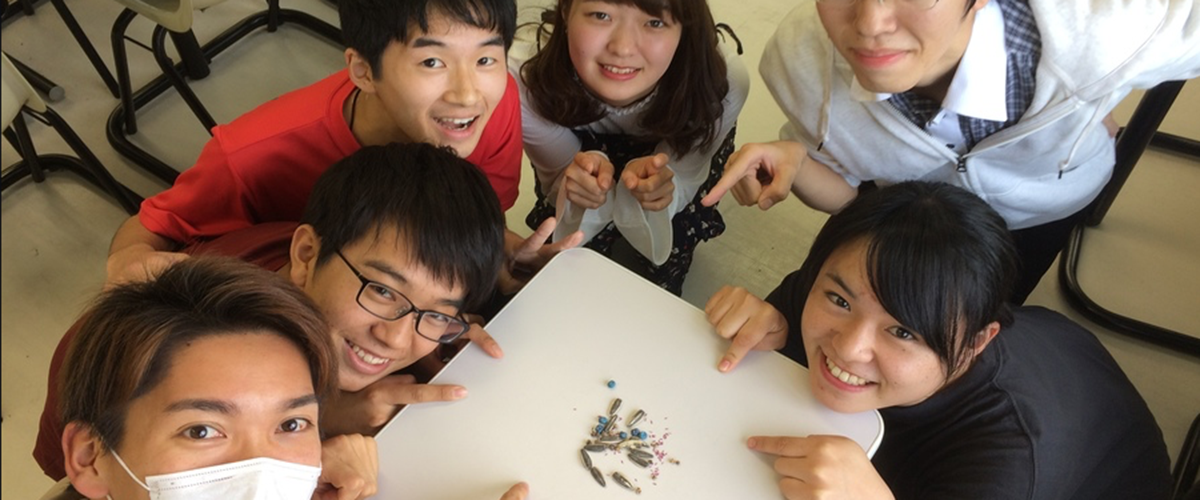挨拶 / Greeting
地球市民への大きな一歩を踏み出そう
みなさん、名古屋市立大学合格おめでとうございます。
みなさんは高校までに豊かな英語教育を受けてきたと思います。海外経験をした人もいるかもしれません。世界各地の文化に関心をもっている人もいるでしょう。留学したい、地域の多文化共生にかかわりたい、国際的な研究をしたい、将来はグローバルに活動したいなど、みなさんは多くの夢ももっているはずです。
本学では、みなさんのこのような要望に応えるために、"Language for Global Citizenship: Plant Your Own Seeds" という名の語学教育プログラムを展開しています。
このプログラムは他大学の語学教育とは異なり、学部を超えた完全選択制の授業を提供しています。みなさんの関心や問題意識を大切にし、みなさんがこれからつけたい力や伸ばしたい力が獲得できるよう授業内容も工夫をしています。
また、英語以外の語学も、英語圏以外の国と地域の文化を理解し、豊かなグローバル感覚を養うために、幅広い選択肢を準備しました。さらに、大切なコミュニケーション手段である「手話」も言語に位置づけ、「日本手話」のクラスも開設しています。多彩な分野をカバーする本学のネイティブ英語教員を始め、語学担当教員は一丸となってみなさんの成長を支援します。
2022年2月のロシアによるウクライナ侵攻は、グローバル社会の負の側面を顕在化させました。これからの時代を生きるみなさんは、世界の文化のみならず、政治、経済、宗教など、これまで以上に世界を理解し、世界の人々と積極的に関わることが求められます。
他言語を学ぶことは世界を知ることにつながります。来るべき時代に備え、名市大の語学プログラムを通して、今こそ地球市民になる第一歩を踏み出してください。
教養教育・語学プログラムの理念 / Philosophy Statement
語学カリキュラムでは語学を新語学カリキュラムでは、語学をGlobal Citizenship教育の一環として位置づけています。Global Citizenship教育の目標は、自分が地球の一員であることを自覚し、主体的に社会(地域社会・国際社会)の諸問題に向き合い、異文化・異言語の相手との理解と協働、共存をはかり、よりよい社会の実現に向けて積極的に行動・貢献する市民(global citizens)を育成することであり、新語学カリキュラムではそのような市民になるために必要な素養(知識・スキル・価値・態度)を育むことを目指します。
本学の教養教育はのびやかで主体的な学びを推進する教育であり、語学教育でもその精神を最大限尊重します。主体性を促す環境の中で、学生がのびのびと興味を追いかけ、深める学びの場を提供することが、学生に真に学ぶ原動力を与えることになり、結果的に教育効果が高まると考えます(self-directed, interest-driven learning)。同時に、学生の語学に関するニーズ、興味、能力は多様であるという認識に立ち、個人差を尊重、重視し、それらにできる限り対応できるよう、多様性のある学習環境を提供します(diverse learning environments)。
希望者多数の科目では抽選がありますが、基本的には自由に選べる選択制を採用しました。
語学カリキュラムは、学部・学科の壁を越えて、ニーズや興味・関心を同じくする人たちが集うクラス編成となります。授業では皆さんの知的好奇心と行動力、協働・協調の精神を遺憾なく発揮し、お互い刺激を与えあって下さい。
それが、Global Citizenship教育の具現化であり、皆さんの人生、ひいては社会が豊かになることに繋がると信じています。(Plant Your Own Seeds!)
挨拶 / Greeting

Professor Tetsuo Takaishi
Vice-President and Head of the Institute for Advanced Education and Research
Take a big step towards becoming a global citizen
Congratulations to all of you on your success at Nagoya City University.
I believe that you have all received a rich English education up through high school. Some of you may even have had experiences abroad, and some of you may be interested in cultures from around the world. You may have many dreams, such as to study abroad, to be involved in local multicultural activities, to conduct international research, or to be involved in global activities in the future.
In order to meet your needs, we have developed a language education program called "Language for Global Citizenship: Plant Your Own Seeds".
This program differs from other university language programs in that it is fully elective and cross-departmental. We value your interests and awareness of issues and put together a curriculum to help you acquire the skills you need and want to develop in the future.
We have also prepared a wide range of non-English language options to help you understand the cultures of non-English speaking countries and regions and develop a rich global perspective. In addition, we have also positioned "sign language," an important means of communication, as a language, and have established a class for "Japanese Sign Language. Our native English teachers, who cover a wide variety of fields, and other language teachers will work together to support your growth.
The invasion of Ukraine by Russia in February 2022 revealed the negative aspects of global society. In the future, you will be required to understand the world better than ever before, not only in terms of world cultures, but also in terms of politics, economics, and religion, and to actively engage with the people of the world.
Learning other languages will lead you to understand the world. To prepare for the coming age, please take the first step to become a global citizen now through the language program at Nagoya City University.
教養教育・語学プログラムの理念 / Philosophy Statement
The philosophy behind our new program can be summarized in the following points:
1. Global citizenship
2. Diversity of learning
3. Self-directed and interest-driven learning
GLOBAL CITIZENSHIP
Our curriculum is designed to foster global citizenship in our student body. Our goal is for our students to recognize that they are citizens not just in their home countries but of the world at the same time, and that they have responsibilities and opportunities in it. The curriculum equips students as they face the challenges of the 21st century through collaboration and cooperation with classmates, mentors, the community, and our world partners. Through this, they will understand a variety of world cultures and in different languages. It aims to teach students to be active contributors to a better society and world, fostering progressive and peaceful coexistence of all human kind. Under the new curriculum, we will nurture knowledge, skills, values, and attitudes in order for our students to become responsible and responsive global citizens.
A global citizen:
• acts within their own community with an awareness of possible global impacts
• practices cultural empathy
• understands their own responsibility for the condition of the planet
• considers consequences as a consumer
• makes principled decisions
This curriculum emphasizes student awareness of their ability to take action on world issues. Grounding learners in Global Citizenship attitudes aligns with the UNESCO proposals of “Global Citizenship Education” (GCED). In a complex and multidisciplinary world, we must work toward the realization of universal values such as human rights, peace, and sustainable development. Among the topics to be discussed include and are not limited to: energy issues, health and welfare, gender equality, conflict resolution, LGBT issues, and deforestation. These topics and others are closely related to the United Nations Education for Sustainable Development (ESD), which is positioned as an important element for implementing the “2030 Agenda for Sustainable Development.” [For further information, see http://www.un.org/sustainabledevelopment/sustainable-development-goals/]
For Global Citizenship as it relates to education at NCU and to language education in particular, the following elements are essential.
Communicative ability in English
As a means of communicating with people from various cultures in wide regions of the world, English is currently the most prominent language for international cooperation, action, and problem-solving for the benefit of the greater society. In order to gather and produce information, exchange opinions, and to achieve mutual understanding in a variety of World Englishes, our students will need to acquire practical English communicative ability.
Interest, understanding, and a working knowledge of languages other than English
Our university charter states that we strive to instill in our students a balanced appreciation of our diverse, multicultural world society. To that end, it is essential to develop an interest in, knowledge about, and understanding of languages other than English. Knowledge of a variety of languages aids our students in creating wider connections across national boundaries.
Global awareness
In order to realize the universal values of human rights, peace, and sustainable development in society, our students must develop skills in problem solving through critical and creative thinking and the ability to take action. This begins with awareness of the problems we face in an increasingly complex and diverse world.
DIVERSITY OF LEARNING
Diversity is an important principle of our language program. To meet the diverse interests and needs of our students, our new program offers options for:
・languages – 11 languages, including the six official languages of the UN and Japanese sign language
・learning styles – a variety of types of course methods and content
・levels of ability – courses designed to meet and develop students’ abilities
SELF-DIRECTED AND INTEREST-DRIVEN LEARNING
Our Language for Global Citizenship program endeavors to create an environment which encourages learning based on students’ interests (what they want to learn), and one which provides students with opportunities to pursue certain methods of study (how they want to learn – for example through lectures, small group projects, or traditional classwork). We believe that self-directed and interest-driven learning increases students’ motivation to learn, and as a result, they will take an active role in their own education. In other words, students have the opportunity and freedom to select the languages, themes and methods of their choice.
Summary
Under our language curriculum, language education is regarded as part of Global Citizenship Education (Language for Global Citizenship), providing a variety of language experiences centered on students’ interests, and fostering students’ ownership of their educational experience. Through this program, we hope to empower students themselves to think and act on what they learn, and to develop the urge to take the initiative (Plant Your Own Seeds). By fundamentally reforming our program to meet proficiency levels, and by establishing courses based on a variety of content and learning methods, we are better equipped to meet our students’ interests and abilities.



